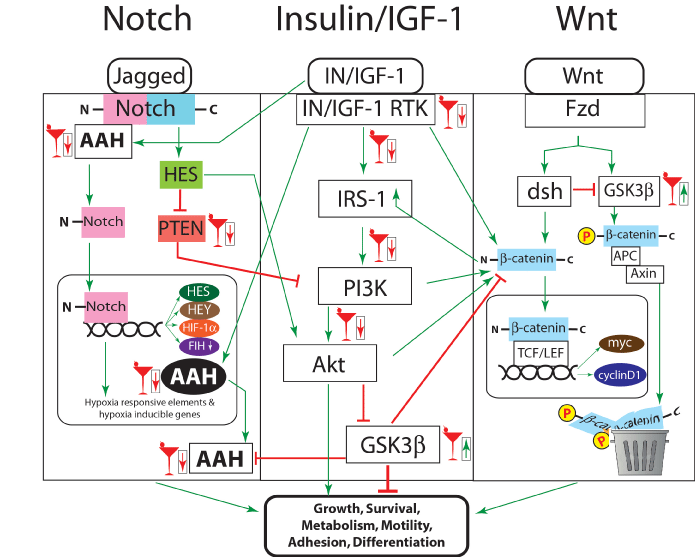
 |
| Figure 6: Proposed effects of ethanol on cross-talk signaling of insulin/IGF-1 with Notch and Wnt pathways in the developing brain. Ethanol inhibits insulin/ IGF-1 signaling by impairing ligand-receptor binding, activation of receptor tyrosine kinases, tyrosine phosphorylation of IRS-1, and transmission of signals downstream through Akt pathways. In addition, ethanol activates phosphatases (PTP-1b and PTEN) that negatively regulate signaling through insulin/IGF-1 receptors and PI3K. Ethanol inhibits insulin/IGF-1 regulated genes that mediate Notch signaling, e.g. AAH. The net effect is inhibition of Notch target genes such as HES and HEY, and reduced cross-talk with the insulin/IGF-1 pathways via inhibition of PTEN and activation Akt. Ethanol disrupts Notch signaling at other levels in the cascade, including via ligand and receptor gene expression. Canonical Wnt signaling is regulated by GSK- 3β, which phosphorylates β-catenin, targeting it for proteolytic destruction. Ethanol may impair Wnt signaling by inhibiting insulin/IGF-1 suppression of GSK-3β or by directly activating GSK-3β. The resulting high levels of GSK-3β activity could dampen positive cross-talk with Wnt-activated cellular functions. |